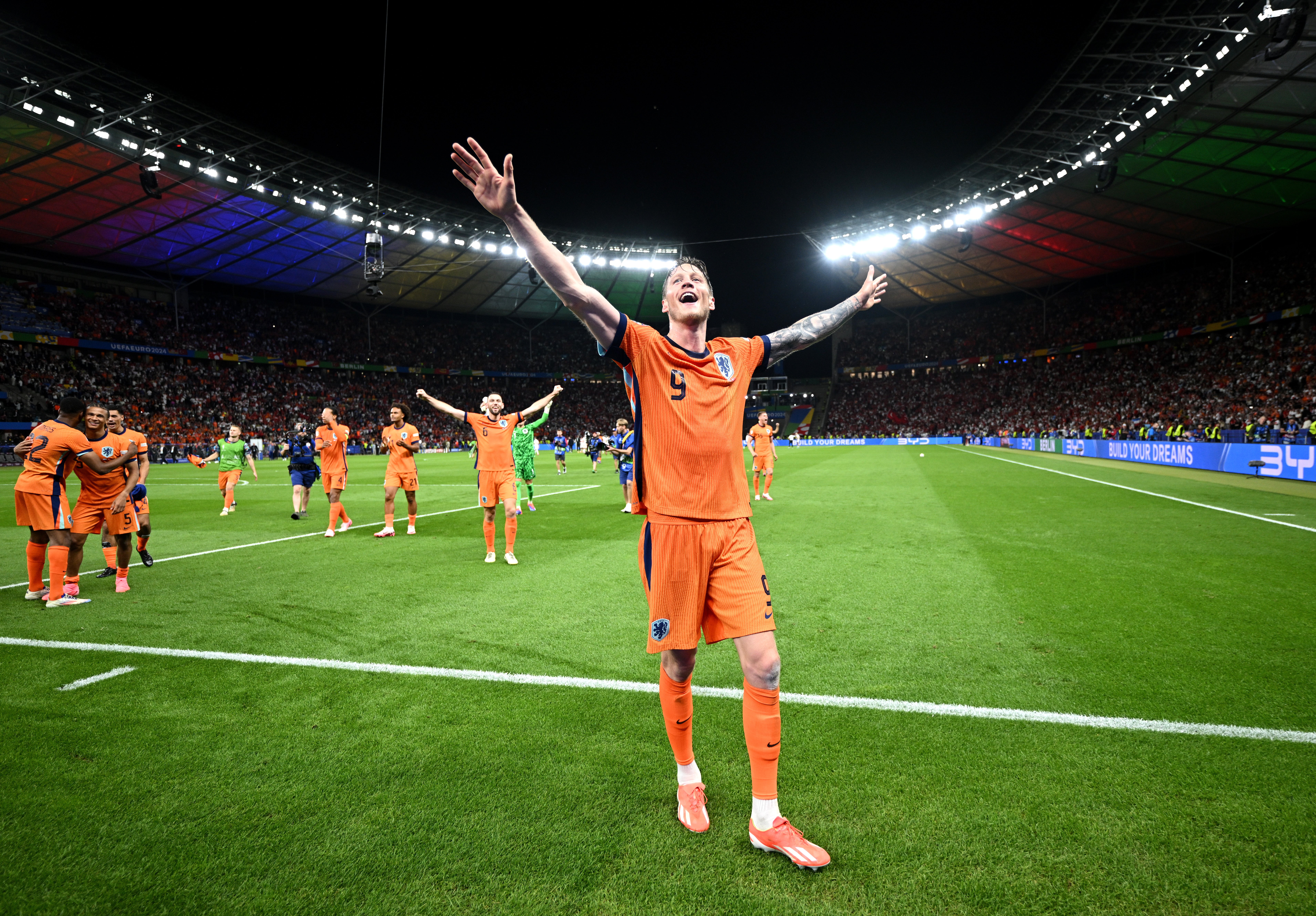Ronald Koeman and the European Championship have history. Thirty-six years after he scored in a semi-final in Germany, he will manage in one. The Koeman double is on.
Koeman and England have history, too, and not merely the group-stage game in 1988 when Marco van Basten scored a hat-trick. A certain brand of infamy came five years later, in a World Cup qualifier that condemned Graham Taylor’s reign to failure. Koeman’s last-man foul on David Platt brought only a yellow card, his precise free kick gave Netherlands the lead. Did Taylor not like that.
Perhaps international football brings these stories that unfold over decades with the same themes: Gareth Southgate, penalties and England’s long quest to win something; Koeman and Netherlands, a great player now two games from the first genuinely great managerial achievement of his lengthy coaching career.
As it is, his twin spells in charge of his country – separated by the bittersweet realisation of his ambition to manage Barcelona – have brought ends to wilderness years: first, after they missed out of Euro 2016 and the 2018 World Cup, steering his country back to a major tournament in Euro 2020 qualifying; now a first semi-final in a decade, a first in the European Championship for two decades.
“I think for the whole nation it is something special,” said Koeman. “We are a small nation and to be part of the semi-finals with England, France and Spain, we are really proud.” That great historic tradition should not obscure the reality that Netherlands have punched above their weight.
A manager faulted at times for his tactical sense and team selections has overseen a triumph of resourcefulness, of character. “The players showed a big heart tonight,” said Koeman after a comeback to defeat Turkey. “Sometimes we get criticised about that; that we don’t have that compared to other nations.” Southgate, too, can say that imbuing spirit is part of an international manager’s job.
But another element is adaptability. Koeman has never been one of the Dutch game’s inflexible ideologues. That may be just as well. He has had to change his plans: before the tournament, during games. He lost his first-choice midfield, with barely a week to go, with first Frenkie de Jong and then Teun Koopmeiners ruled out. It may be unsurprising this Dutch team can lack control. If there have been moments of trial and error – the selection of Joey Veerman against Austria, when he was replaced after 35 minutes by Xavi Simons, who proved a distinct improvement – was a case in point.
But Koeman has made a series of telling changes during games; against Poland, Austria and now Turkey. “If things don’t go well then you need to make changes,” he added. “I don’t think it is the case success is only due to myself. You need to give credit to the substitutes, how they can improve the game as a whole.”
Micky van der Ven, who made a goal-saving block to deny Turkey an equaliser, is carving out a strange specialist role as a replacement left-back. Koeman’s flagship replacement, however, has been Wout Weghorst, the target man who enables them to go more direct and sling in more crosses. Weghorst’s first four cameos of the tournament had amounted to 44 minutes. His fifth lasted 45, Koeman recognising at half-time that with Turkey defending deep and in numbers, he needed another dimension. Weghorst provided it.

The oddity of a semi-final for Netherlands’ impact substitute is that he is the English-style centre-forward who has scored goals everywhere except England: just two in 20 games for Burnley, two in 31 for Manchester United. Perhaps it shows the English should not try and export clogs to the Netherlands.
If Koeman, who took Southampton to their highest top-flight finish since 1985 but who is part of a long list of sacked Everton managers, may have less of a point to prove, his attackers have provided him with validation. His three main forwards – Memphis Depay, Cody Gakpo and Weghorst – look better players for country than club. The same may not always be said of some of his defenders.
Netherlands were hanging on at times against Turkey. A side who finished third in their group don’t always look one of the best four sides in Europe; then again, neither have England in this tournament.
There is an awareness this is not one of the finest Dutch teams: certainly not comparable with the class of 1974 or 1988, but also a level below the sides of 1978, 1998, 2004, 2010 and 2014. But that renders it still more a feat to steer them to a semi-final again. Dutch footballing history is interwoven with Koeman’s, with a man who played for them in the 1980s and 1990s and managed them in the 2010s and 2020s. They have won one tournament: with Koeman in the team. If their tally is doubled now, it will be with Koeman in the dugout.

